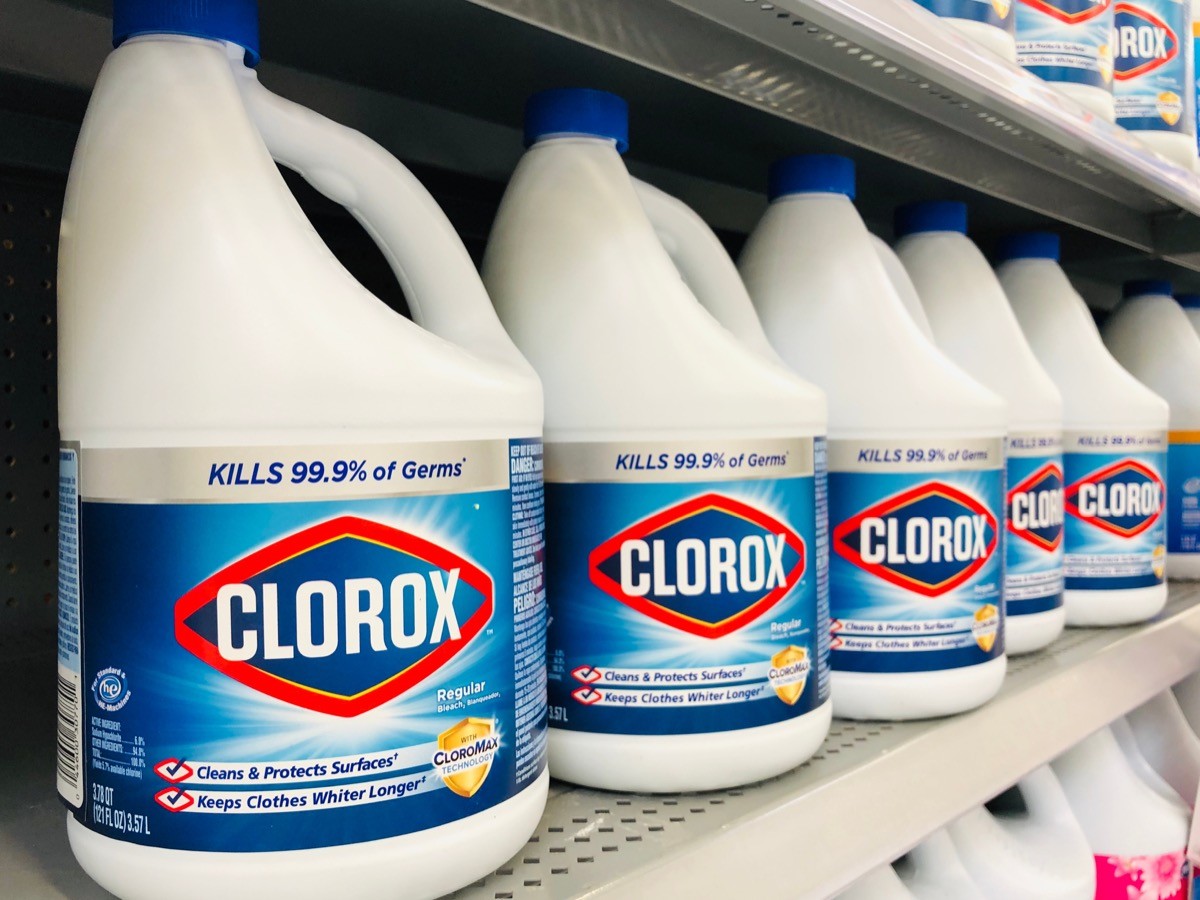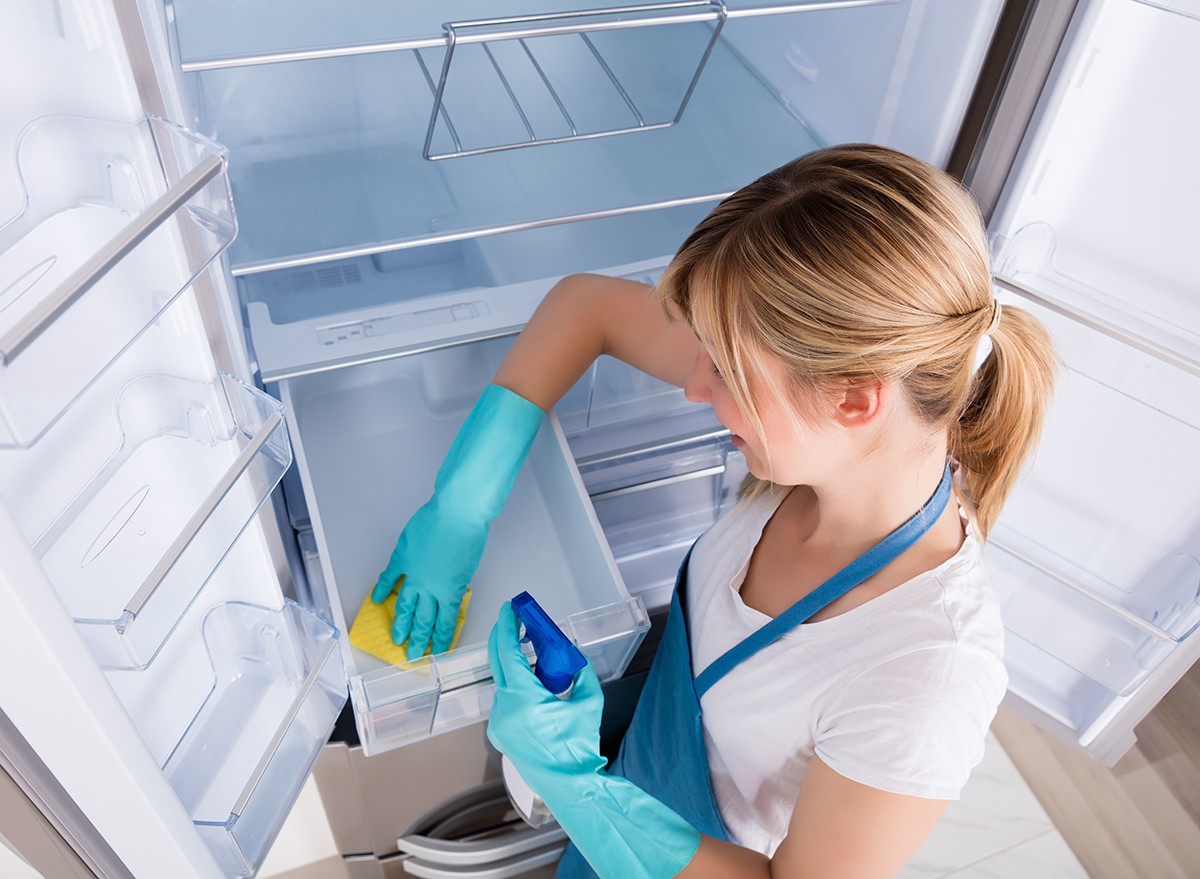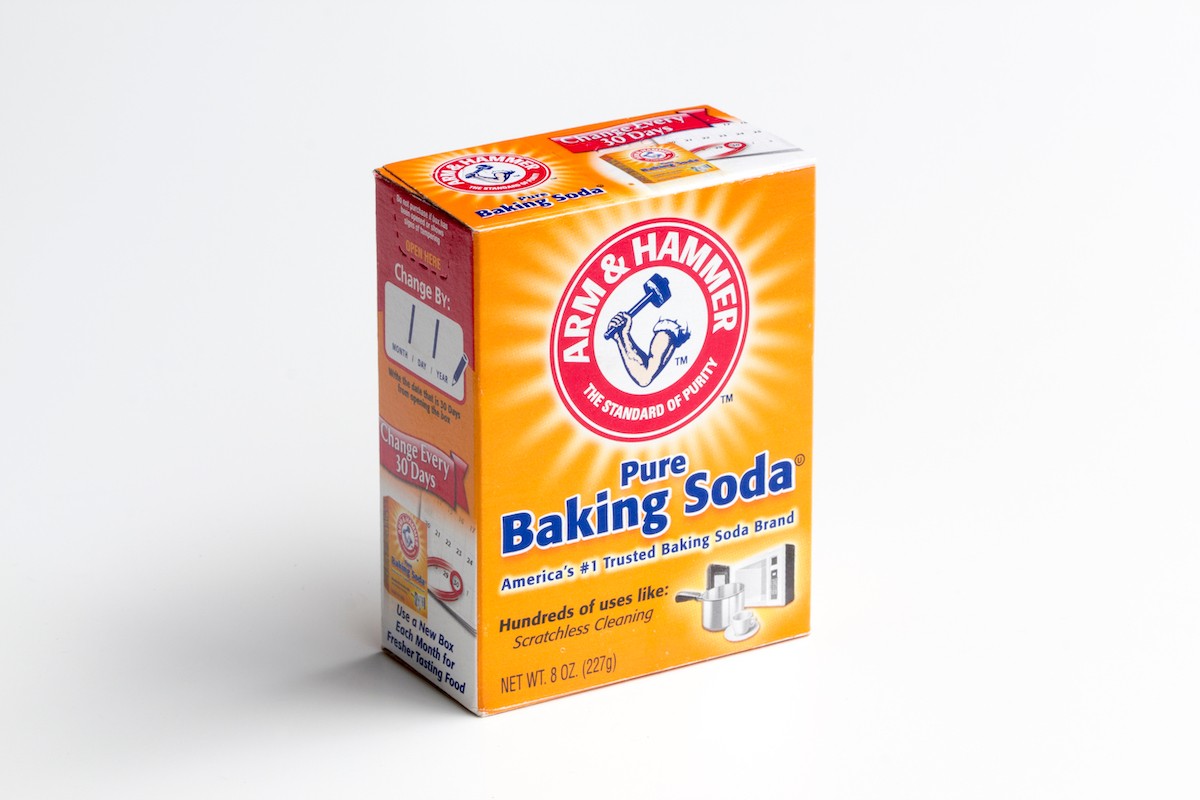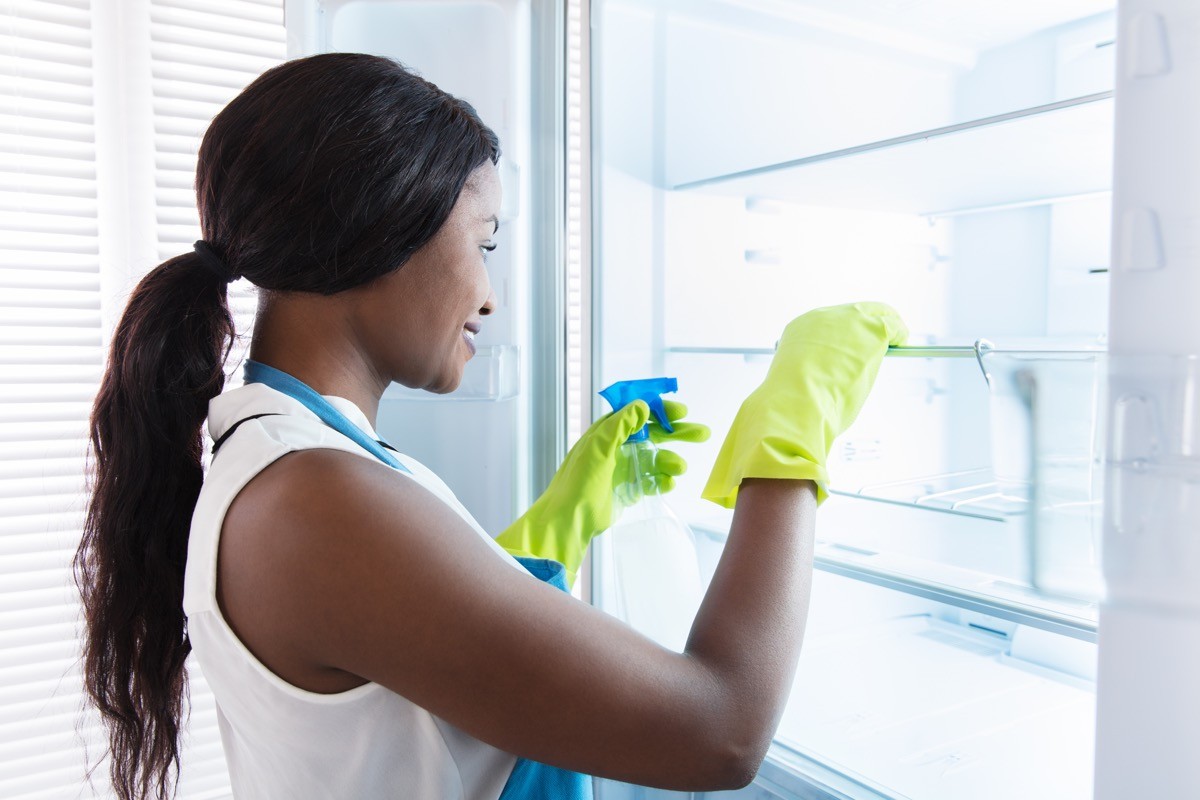The One Mistake Everyone Makes When Cleaning the Refrigerator

No matter how clean and fresh you keep your home and kitchen, refrigerators get dirty—food spills or goes out of date, dairy spoils and leaves nasty odors, and what about that sad bag of kale that’s been marinating in the vegetable drawer for two weeks? When the fridge gets grimy, it can be tempting to pull out the harshest cleaners to deal with the mess, but using certain chemicals can cause far more harm than good. Here is the one mistake people make when cleaning their refrigerators.
RELATED: The Ultimate Deep-Cleaning House Checklist.
Don’t Use Bleach In Your Fridge

For regular cleaning, do not use bleach to clean your fridge—it’s bad for the fridge, the food, and your health. “Most appliance manufacturers urge against the use of bleach for cleaning the fridge, as it can harm the materials of the fridge interior and can be a safety risk if transferred to food,” Angela Bell, a cleaning expert with Grove Collaborative, tells The Kitchn. Instead, Bell recommends a solution made with one part white vinegar and three parts water in a spray bottle for a non-toxic, effective cleaner.
Bleach and Food

Using bleach to wipe down a fridge can contaminate your food, which soaks up the chemical even with rinsing. “Using bleach or detergents to clean fruits and vegetables can make you sick if you swallow the chemicals,” according to FoodSafety.gov. “It’s always important to rinse fresh fruits and vegetables before you eat them, but produce is porous, so soap and other disinfectants may be absorbed by fruits and vegetables even with thorough rinsing.”
Bleach and Your Lungs

Regularly using bleach can impact your health. “Harsh cleaners like ammonia and bleach are known to irritate the mucous membranes lining the airway,” says Kim Polacek, APR, CPRC, via Moffitt.org. “Breakdown of those membranes can result in asthma, chronic airway obstruction or low-grade inflammation.”
RELATED: Your Ultimate Spring Cleaning Checklist.
Use Baking Soda

Baking soda is highly effective for removing bad smells from the fridge. “You can use various kinds of multipurpose cleaners on a refrigerator, but many people are more comfortable using products that are edible, like white vinegar or baking soda,” says the Home Depot. “Baking soda also absorbs odors. Wondering how to clean a fridge with baking soda? Fill a spray bottle with a cleaning solution of two tablespoons baking soda and a quart of hot water.”
Best Way To Clean the Fridge

If you need to deep clean the fridge, especially after a food recall, you will need something stronger than just vinegar and water. “If you’re cleaning a particularly grimy fridge (think mold, mildew or any other scary and smelly material growing inside), you will want something stronger than vinegar and dish soap to tackle the job,” says Elizabeth Shaw, MS, RDN, CPT, via Clean Eating. “Start with a bowl or tub of soapy hot water, a scrub brush and a sponge to scrub away all of the grime. Once wiped clean, sanitize the surface with a CDC-recommended diluted bleach mixture: 1 tablespoon bleach to 1 gallon of water. Give the fridge enough time to air dry before restocking it with any food.”